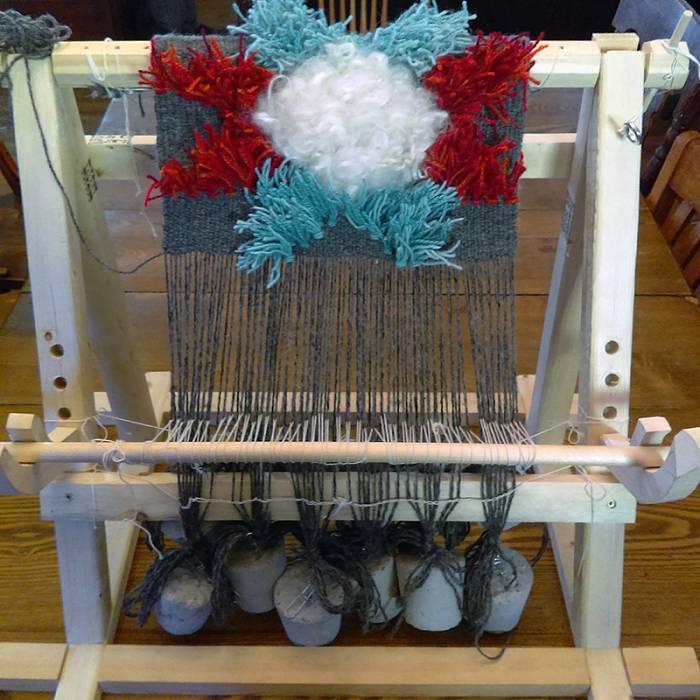
Rya Weaving on a Warp Weighted Loom
Course Overview
The rya-style weaving technique can be found in many parts of the world. The knots used create a long pile which gives pieces a characteristic shaggy appearance. Ryas were particularly popular in Scandinavia and date to the Iron Age. Until sometime in the 19th century they were woven on the historic upright warp-weighted loom. In this class students will learn the weaving technique as well as how to set up and weave on a tabletop version of the warp-weighted loom. Though crafted in this deeply traditional manner, the finished ryas students will create can be transformed into a shoulder bag, seat cushion, pillow top or wall hanging at home in a modern setting.
During the Viking era, a varafeldur (or shaggy mantel) was a type of rya that was woven in Iceland, worn as a cloak, and used as a trade commodity back to Norway. It was woven with woolen yarn and locks from sheep fleece. A boat rya (båtryer) was woven with woolen yarn and used by fisherman in northern Norway as a blanket or covering in the open fishing boats. Other ryas were woven to be used in the home as bedding or rugs. In this class students can explore the variations of rya weaving using yarns, fleece and fabric strips and decide which rya style they like best.
Required Tools
- Sharp scissors
- Measuring Tape
- Ruler
- Note-taking materials
Optional Tools
- Fabric strips you might wish to incorporate into your piece
- Fleece locks
